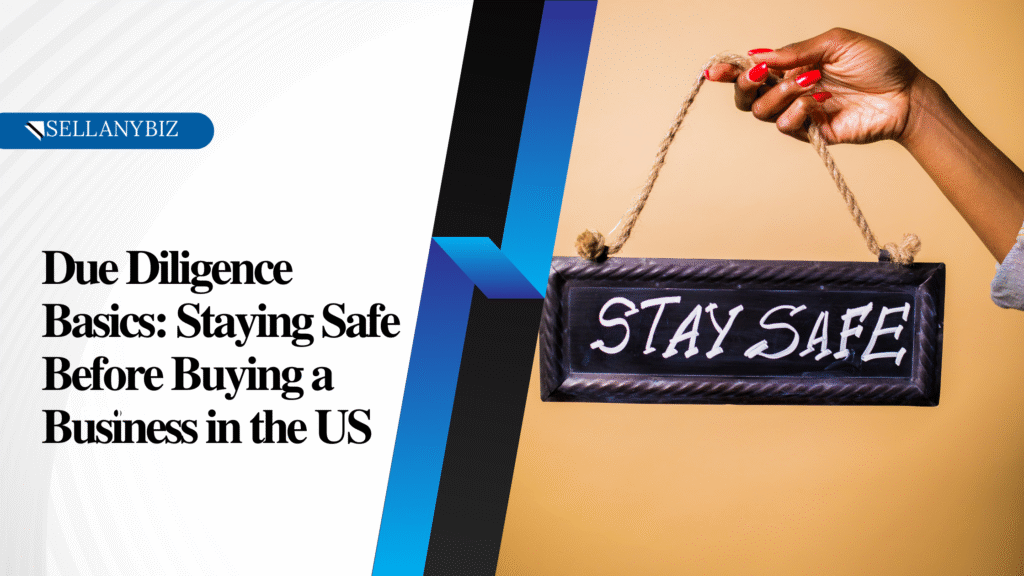Introduction:
Due Diligence Basics are essential when deciding to buy a business in the US. During the due diligence USA process, you carefully assess the financials, legal aspects, and operations of the company before committing to the purchase. Following a detailed buy business checklist ensures you review everything — from balance sheets to potential risks — so nothing catches you off guard later.
In this guide, we’ll walk you through the Due Diligence Basics every buyer should know before purchasing a US business, giving you the tools to make a smart and secure decision.
What Does Due Diligence Mean in the US?
In the US, due diligence means the steps a buyer takes to investigate before closing a deal. This process includes checking, collecting, and reviewing details to confirm the business is exactly as the seller describes.
It’s your chance to:
- Spot hidden risks
- Assess growth potential
- Confirm a fair price
Skipping this stage — or rushing it — can lead to costly financial or legal issues after the sale.
Creating a Checklist to Buy a Business
A buy business checklist acts as your roadmap during the due diligence USA process. While each business type has unique factors, most checklists cover these key areas:
1. Reviewing Financial Records
- Review balance sheets, income statements, and cash flow reports from the past 3–5 years.
- Watch for unusual revenue or expense patterns.
- Confirm accounts receivable/payable have no overdue liabilities.
2. Legal Compliance
- Verify all licenses, permits, and registrations.
- Check for lawsuits, regulatory violations, or unpaid taxes.
- Investigate intellectual property rights, such as patents or trademarks.
3. Operational Assessment
- Understand daily operations, supplier relationships, and customer contracts.
- Assess process efficiency, technology reliability, and equipment condition.
- Determine whether key employees will remain post-sale.
4. Market and Competitor Analysis
- Study competitors, market growth rates, and customer demand.
- Identify risks like new market entrants or changing regulations.
Common Pitfalls in Due Diligence
Even with a checklist, buyers sometimes miss key warning signs:
- Trusting the seller’s word without verification
- Ignoring cultural fit in service-driven businesses
- Overlooking liabilities like hidden debt or obsolete stock
- Failing to assess long-term business sustainability
Avoiding these mistakes is crucial in the due diligence USA process to protect your investment.
How Experts Can Assist in Due Diligence
While you can handle basic checks, hiring professionals such as accountants, attorneys, or industry consultants can:
- Uncover issues in legal or financial documents
- Conduct thorough background checks
- Ensure compliance with federal, state, and local laws
Expert help makes your buy business checklist more reliable and reduces risk.
Last Steps Before Signing
Once you’re satisfied with the due diligence results:
- Negotiate adjustments to price or terms if needed
- Ensure the purchase agreement includes all warranties and representations
- Finalize the transition plan with the seller, focusing on staff, suppliers, and customers
Conclusion:
Buying a business takes preparation and the right guidance. By mastering Due Diligence Basics and following a structured buy business checklist, you can evaluate a company’s strengths, weaknesses, and risks before making your decision. With careful research and expert support, you’ll protect your investment and set yourself up for long-term success.























